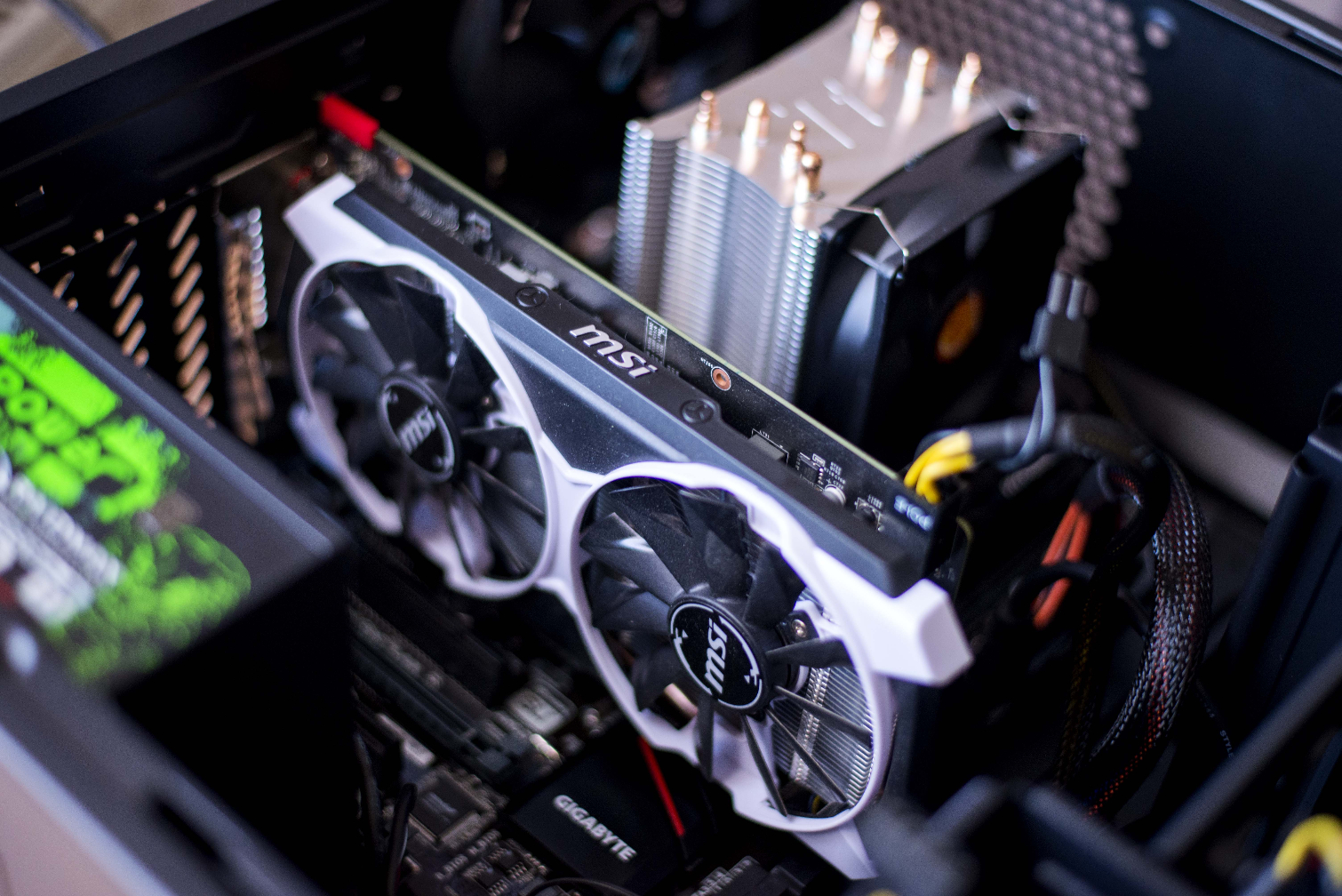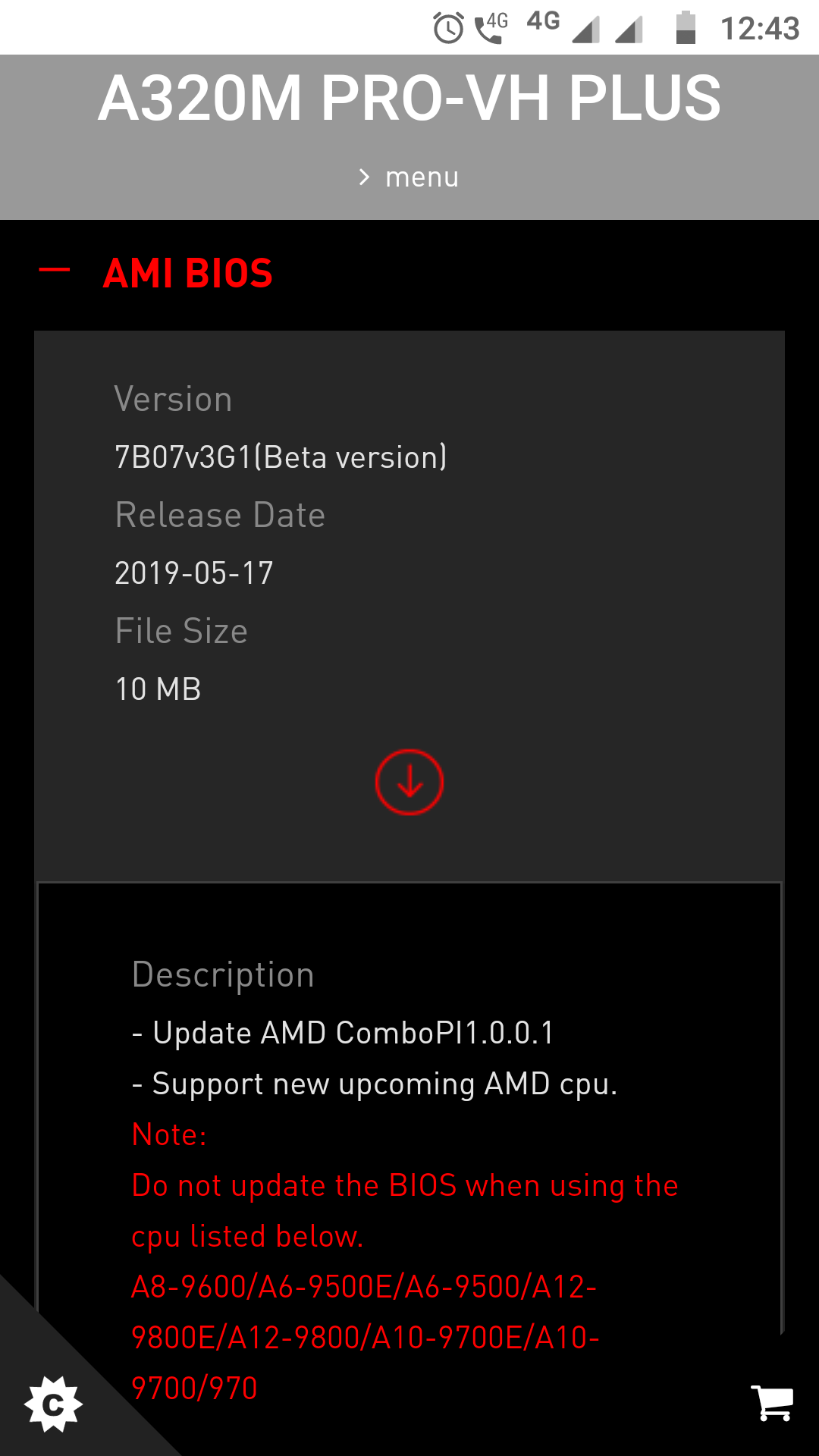MSI Culls Bristol Ridge Support From Some AM4 Motherboards
With Ryzen 3000 coming to AM4 motherboards very soon, motherboard vendors have been hard at work pushing out BIOS updates with support for AMD's new CPUs to their existing 300- and 400-series boards. However, it is becoming apparent now that at least some AM4 motherboards won't support all of AMD's Socket AM4 CPUs, as MSI has removed Bristol Ridge support from at least one of its boards with the A320 chipset.
This is similar to the recent discovery that Asus hasn't delivered further Ryzen 3000-compatible BIOS updates to the A320 chipset, denying A320 owners the chance to upgrade to AMD's latest.
Asus and MSI likely have similar reasons behind their decisions: BIOS chip storage capacity. As AMD's CPU collection on the AM4 platform grows, so does the size of BIOSes which must accommodate all AM4 CPUs. Lower-end boards typically have only 8MB of storage for BIOSes, whereas higher end boards get 16MB. Supporting Bristol Ridge (the A-Series APUs), Summit Ridge (Ryzen 1000), Pinnacle Ridge (Ryzen 2000), and Raven Ridge (Ryzen 2000 APUs) all at the same time has become difficult due to chip capacity constraints. Now AMD is adding the Matisse processors to the mix.
To deal with this, vendors have two options. Asus apparently chose one, which is to simply stop supporting updates for cheaper A320 motherboards that didn't have the storage necessary to store bigger BIOSes. MSI has chosen the other, to remove support for Bristol Ridge or other previous architectures to make room for new additions. This could make more sense than what Asus has done since the A-Series isn't exactly a popular choice for AM4 motherboards, and it's unlikely many people will be angry with MSI's decision to stop supporting these last-gen APUs.
Either way, though, these decisions are impacting AMD's promise to support the AM4 platform until 2020. It's nice to have CPUs that work on the same socket every generation, but if some motherboards can only support some of those generations at a time, then it's not entirely different than what Intel did with its 300 series of motherboards: keeping the socket but not allowing previous-gen CPUs to work on the new chipset, or new CPUs to work on the old chipsets.
At least this time around it appears to be a problem that isn't a specific choice of the vendor (it is somewhat out of AMD's control), and it appears to be confined to low-end motherboards. Hopefully we won't see too many motherboards discontinuing support for previous or future generations of Ryzen, especially the high end X chipset boards.
Get Tom's Hardware's best news and in-depth reviews, straight to your inbox.

Matthew Connatser is a freelancing writer for Tom's Hardware US. He writes articles about CPUs, GPUs, SSDs, and computers in general.

